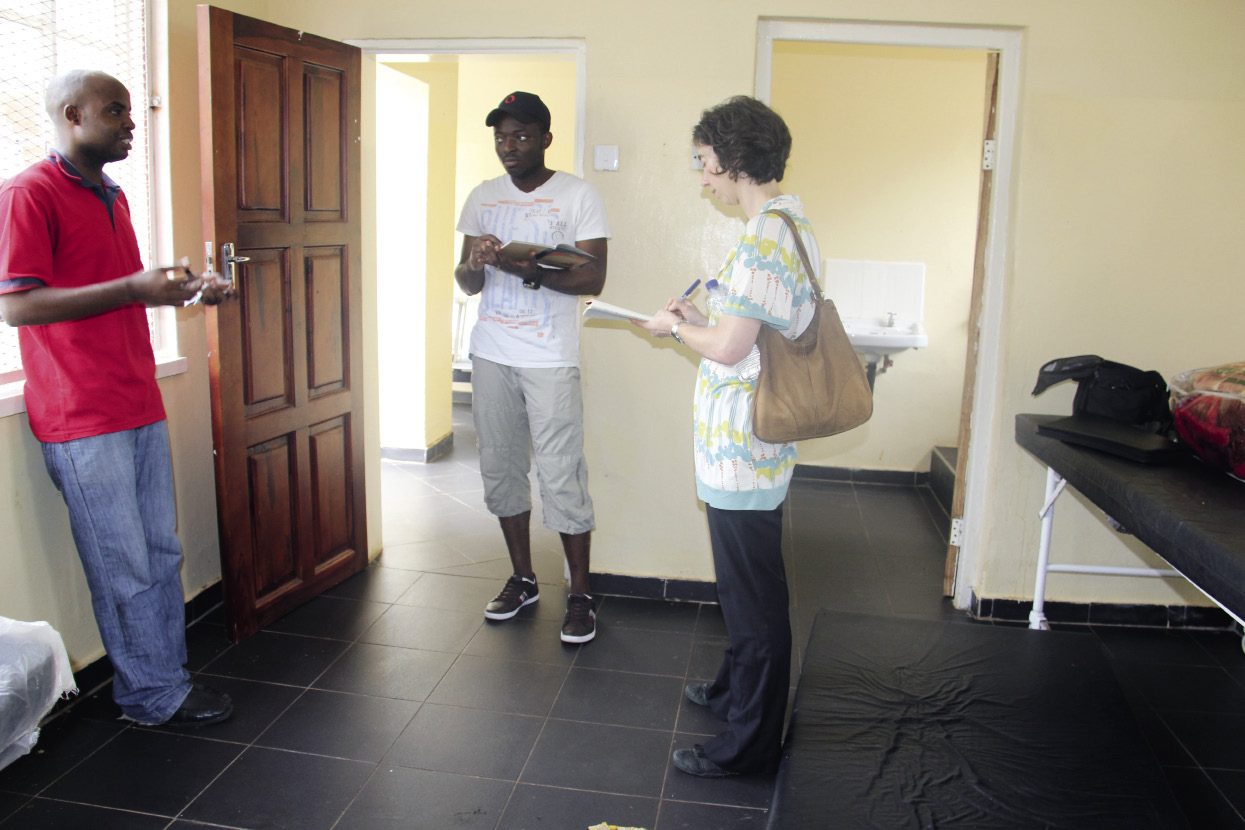9(A). Complaints mechanisms
 Photo: MDAC’s Eyong Mbuen and Hannah Roberts with a psychiatric clinical officer in the newly-constructed psychiatric unit at Livingstone Hospital, 29 January 2014. © MDAC and MHUNZA.
Photo: MDAC’s Eyong Mbuen and Hannah Roberts with a psychiatric clinical officer in the newly-constructed psychiatric unit at Livingstone Hospital, 29 January 2014. © MDAC and MHUNZA.
None of the facilities visited had internal complaints mechanisms, which allowed people who have been abused to complain to the authorities. There were no external complaints mechanisms such as a healthcare ombudsperson. Patients can report complaints to the Human Rights Commission, but apparently this has never happened.160
 Photo: Male patient at Kabwe psychiatric unit complaining to carers, 24 October 2012. © MDAC.
Photo: Male patient at Kabwe psychiatric unit complaining to carers, 24 October 2012. © MDAC.
There is no clearly defined mechanism for patients whose rights are seriously jeopardised to raise the alarm. It is a serious violation of human rights where the state removes a person’s liberty and then keeps them incommunicado, and where they are prevented from raising the alarm. Unsurprisingly, no legal challenges have ever been made about psychiatric facilities in Zambia.
A complaint system is important because, without one, there will be a lack of information about urgent improvements required to bring the system into compliance with basic human rights standards. It was disappointing to learn from numerous staff the way in which they discounted the possibility that their patients could be sexually abused.161
Patients in closed wards told monitors of physical abuse.
A female patient in the B Ward in Chainama Hills Hospital explained how ward staff and a security guard had beaten her with their hands and baton until her face became swollen. Monitors saw a female patient at Ndola psychiatric unit slapping another patient; student nurses watching did nothing. One of the staff at Chainama Hills Hospital told monitors that patient-on-patient fighting was common in all psychiatric hospitals. Some patients told monitors that wards were unsafe.
A female patient said:
When I’m in the hospital I prefer to be locked up [in a seclusion room] because of the uncertainty of the environment. Patients come from the male ward, they come in and abuse. I can’t fight. At night staff might be very tired and not bother to come out and help you.
160 Constitution, Article 125 and 126. See also Human Rights Commission Act, 1996.
161 At Chipata, staff spoke of a woman who disclosed during a music workshop that one man had been raping her. This was not investigated. In all facilities, staff noted they could do nothing more than talk to patients and tell them not to engage in such behaviour again.

